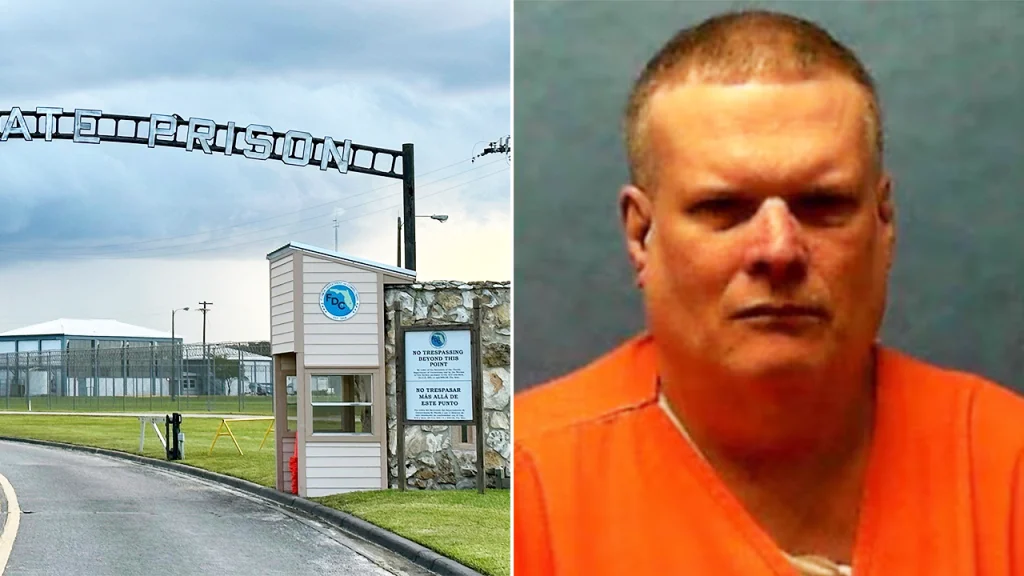Florida Man’s Execution Marks Record Year for Capital Punishment in the State
David Pittman, a 63-year-old Florida man, was executed by lethal injection on Wednesday at Florida State Prison, becoming the 12th person put to death in Florida this year—an unprecedented number that establishes a new state record. Convicted in 1991 for the murders of his estranged wife’s parents and sister, Pittman maintained his innocence until the end, declaring in his final statement: “I know you all came to watch an innocent man be murdered by the state of Florida. I am innocent. I didn’t kill anybody.” His execution came after Governor Ron DeSantis signed his death warrant and following the U.S. Supreme Court’s rejection of his final appeal just a day earlier.
The crime that led to Pittman’s death sentence occurred in May 1990 during his divorce proceedings. According to prosecutors, Pittman fatally stabbed his wife Marie’s parents, Clarence and Barbara Knowles, along with their 21-year-old daughter Bonnie at their Polk County home. After the killings, he set the house ablaze and stole Bonnie’s car, which he also later burned. Investigators pointed to Pittman’s history of threatening the family, while a witness identified him fleeing from the burning vehicle. A jailhouse informant also testified that Pittman had confessed to the murders. Polk County Sheriff Grady Judd, who witnessed the execution, offered a stark assessment afterward: “He was evil then. He never changed. This evil man wiped out an entire family.”
Pittman’s more recent appeals had centered on evidence suggesting he suffered from intellectual disabilities that existed at the time of the murders—a condition that, if proven, would have made his execution unconstitutional under protections against executing people with severe mental impairments. However, state lawyers successfully argued that it was too late for Pittman to claim mental impairment from decades earlier, and in 2020, the Florida Supreme Court ruled that such claims could not be applied retroactively. This decision effectively sealed Pittman’s fate despite advocates pointing to what they described as a “well-documented and life-long history of intellectual disability” and a traumatic childhood marked by abuse and neglect.
Floridians for Alternatives to the Death Penalty issued a powerful statement following the execution, condemning the state’s actions: “We the People of the State of Florida killed David Pittman, an intellectually disabled man. We killed a man who was broken and beaten as a child.” The organization highlighted Pittman’s troubled upbringing, describing how “violence, neglect, and hardship shaped David’s childhood long before the State ever called him a defendant.” They further criticized the state’s reasoning for proceeding with the execution, arguing that the evidence of his intellectual disability was rejected not on its merits but because it wasn’t raised “during the proper or procedurally appropriate time.”
Florida’s execution record this year stands in stark contrast to other states, with Texas and South Carolina tied for a distant second with four executions each. Nationwide, 31 people have been executed in 2025 so far. The pace shows no signs of slowing in Florida, with two more executions already scheduled: Victor Tony Jones on September 30 for fatally stabbing a married couple during a robbery, and Samuel Lee Smithers on October 14 for the murders of two women. If carried out, these would bring Florida’s total to 14 executions for the year—far exceeding the state’s previous record of eight in 2014, established after the death penalty was reinstated in 1976.
Critics of Florida’s accelerated execution schedule have questioned its purpose and effectiveness. “There is zero evidence to show that this unprecedented pace of executions is keeping the people of the State of Florida any safer,” stated Floridians for Alternatives to the Death Penalty. Instead, they argue, the state is “tearing apart families and killing broken and traumatized people who should be legally exempt from execution.” The organization offered a sobering prediction: “There is no doubt that history will reveal that this killing spree is indeed the darkest time in the Sunshine State.” As Florida continues to lead the nation in executions, the debate over capital punishment—its application, effectiveness, and morality—remains as contentious as ever, particularly in cases involving questions of mental capacity and culpability.


